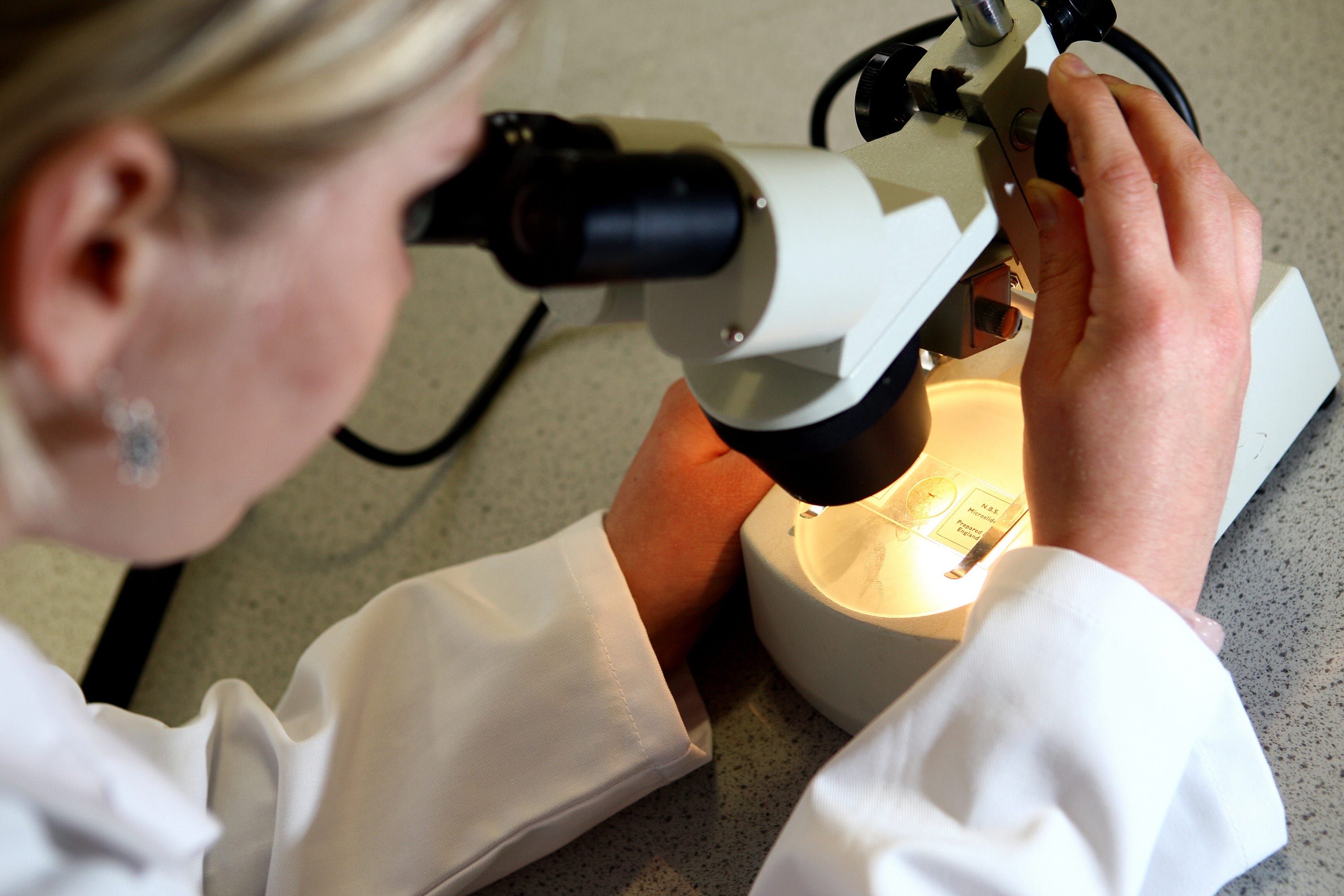Combined immunotherapy drugs ‘could treat most common form of bowel cancer’
This type of bowel cancer has previously not responded to immunotherapy, researchers say.

Your support helps us to tell the story
From reproductive rights to climate change to Big Tech, The Independent is on the ground when the story is developing. Whether it's investigating the financials of Elon Musk's pro-Trump PAC or producing our latest documentary, 'The A Word', which shines a light on the American women fighting for reproductive rights, we know how important it is to parse out the facts from the messaging.
At such a critical moment in US history, we need reporters on the ground. Your donation allows us to keep sending journalists to speak to both sides of the story.
The Independent is trusted by Americans across the entire political spectrum. And unlike many other quality news outlets, we choose not to lock Americans out of our reporting and analysis with paywalls. We believe quality journalism should be available to everyone, paid for by those who can afford it.
Your support makes all the difference.A combination of two immunotherapy drugs could be used to treat the most common form of bowel cancer, scientists have said, after trials showed tumours had shrunk or remained stable in three out of five patients.
Botensilimab and balstilimab could “offer new hope” for those diagnosed with a type of cancer that has previously not responded to immunotherapy, researchers from Anglia Ruskin University said.
Both drugs work by triggering the body’s immune system to attack cancer cells.
This is the first time there has been convincing evidence that immunotherapy can work in all forms of colorectal tumours, so this is potentially game changing
Describing the treatment as “potentially game changing”, the team said it hopes authorities in the UK will be “able to move quickly” in approving its use.
The researchers followed 101 patients in the US who were diagnosed with microsatellite stable metastatic colorectal cancer (MSS mCRC), the most common type of bowel cancer.
After six months, tumours were shown to shrink or remain stable in 61% of the patients.
The most common side-effects were diarrhoea and fatigue, the researchers said.
Until now, immunotherapy has only been shown to work on patients with another type of bowel cancer known as specific mismatch repair deficient (dMMR) tumours, which is rarer.
Close to 43,000 people are diagnosed with bowel cancer every year in the UK, with around 85% classed as microsatellite stable (MSS).
Justin Stebbing, professor of biomedical sciences at Anglia Ruskin University, said: “These results are incredibly exciting.
“Colorectal or bowel cancer is one of the most common forms of cancer worldwide and this is the first time there has been convincing evidence that immunotherapy can work in all forms of colorectal tumours, so this is potentially game changing.
This trial is still at a very early stage but does show exciting promise to extend much-needed treatment options for those whose cancer would previously have been resistant to immunotherapy
“This is now progressing into later phase clinical trials and we hope the FDA in the United States approve its use very soon.
“And because this is such an important area, affecting so many people, we hope authorities in the UK are also able to move quickly.”
Dr Andrea Bullock, assistant professor in medicine at Beth Israel Deaconess Medical Centre in the US, said: “This study sheds light on the potential of the BOT/BAL combination to treat microsatellite stable metastatic colorectal cancer, the most common form of colorectal cancer which has historically not responded to immunotherapy, and we hope our results will offer new hope for those diagnosed.”
The research is published in the journal Nature Medicine.
Commenting on the study, Lisa Wilde, director of research, policy, and influencing at Bowel Cancer UK said: “This trial is still at a very early stage but does show exciting promise to extend much-needed treatment options for those whose cancer would previously have been resistant to immunotherapy.
“We will continue to follow with interest.”